living with toddlers
Between the ages of one and three years, your toddler’s world is growing rapidly and this is a time of many changes for them. The most important change is that they are becoming separate, independent people. This can be a challenging time for many parents. It helps if parents understand these changes and are able to help their toddler to become more independent. Toddlers are still babies in many ways and need a lot of love and support from their parents. They move between wanting to be independent and ‘I do myself’ and wanting to be close to their parents. They are longing to feel safe and wanting to be free. What toddlers want most is your love, despite how they may act at times.
Knowing what is happening for your toddler at this stage of development may help you to be more patient and understanding in the way you parent.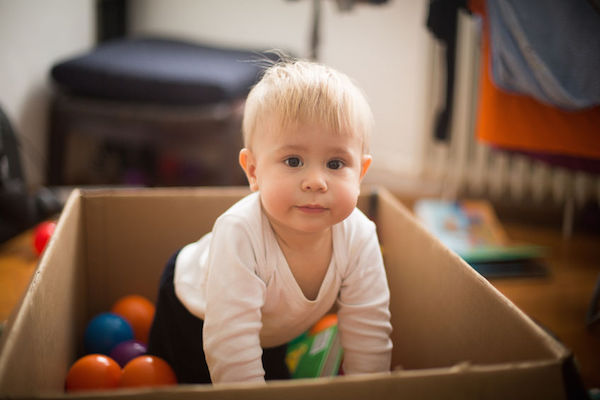
Sometimes when they are on the way to learning self control, children will say ‘No! No! No!’ to themselves while they do something that they shouldn’t. They are not meaning to disobey you. They are on the way to learning what they must not do, but haven’t quite got there yet.
Toddlers do not need to be forced to ‘be good’. They need your approval, love and affection more than anything else. They will still test limits and need you to help them to find ways to manage frustration and be independent.
Toddlers need to be taught in small simple steps and need lots of practice. Do not expect your toddler to remember every time.
Some things to try
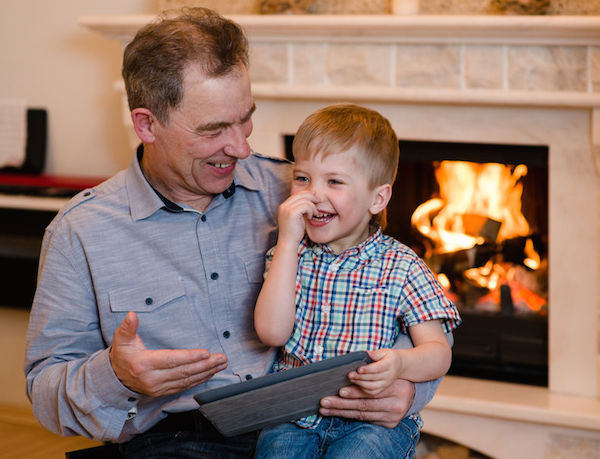
Let your child know that you understand he has fears, and you don’t think he’s silly or babyish.
Special Note: It is never useful to force children to face their fears and can often make things worse. They usually grow out of them, with lots of support and understanding. If fears are really interfering with your child’s life talk it over with a professional who works with children.
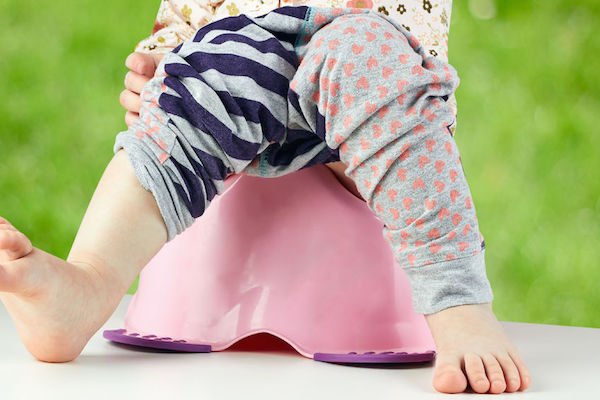
Toddlers are not usually very good at changes and like the things they are used to. This can mean that they don’t want to try new foods. It usually works best if you present the new foods that you want them to eat, with foods they are familiar with, but don’t force them to try the new food. They will come to try new things in time.
Toilet training needs to be relaxed and as hassle-free as parents can make it. Toddlers can easily get upset and have toilet accidents or hang on and not go when they really need to, e.g. if there is tension or they are busy with something. Keep toilet training positive with lots of ‘Well done’, ‘You did that so well’, ‘It’s OK, sometimes accidents happen’. This way your child will want to cooperate and toilet training will not be difficult. If there are problems, leave toilet training for a while and try again later.
Article provided courtesy of Parenting SA
Knowing what is happening for your toddler at this stage of development may help you to be more patient and understanding in the way you parent.

Toddlers are:
- active and curious; they have to explore, touch, open, shut, pour, run, climb and throw
- learning who they are; trying out their wills
- learning to be in charge of themselves; learning to walk, talk, feed themselves
- starting to learn to manage their clothes and toilet training
- learning about living with others; starting to learn how to show love, how not to hurt others, how to share and take turns.
Toddlers are not able to:
- understand your reasons; they cannot understand things from your point of view.
- sit still, wait, share or control their feelings; all these things take time and support to learn
- always stop themselves from doing what they have been told not to; they still need adults to remind them, protect them and to keep them safe.
Toddlers are likely to:
- say ‘No’ and to show they have a mind of their own (even sometimes when they would like to say ‘Yes’)
- get cross and frustrated at times
- not be ready to share because they don’t understand personal boundaries yet
- want to make some choices for themselves
- find it hard to cope with changes
- want to be like their parents, e.g. try on lipsticks and use parents’ things such as phones and keys
- want to feel very secure and safe but at the same time to be free
- not manage and ‘fall in a heap’ sometimes.
Sometimes when they are on the way to learning self control, children will say ‘No! No! No!’ to themselves while they do something that they shouldn’t. They are not meaning to disobey you. They are on the way to learning what they must not do, but haven’t quite got there yet.
Toddlers need:
- understanding
- encouragement
- time to explore
- to be allowed to make simple choices
- to be able to test out their independence and come to you for comfort
- to have help when they are struggling with feelings and behaviour
- love and patience
Changes which can cause difficult behaviour
Toddlers usually like to know what is going to happen and have some routine. Changes in a toddler’s life can be stressful. A toddler usually does not have the words to really say how he is feeling so he may show stress through his behaviour. Some of the things that can stress a toddler are:- arrival of a new baby
- being sick
- moving house, or even into a new bed
- being separated from his parents, e.g. when a parent is sick, someone goes into hospital, starting childcare or the family breaks up
- parents being angry, fighting or crying
What parents can do
Your children need you to help them learn to be independent and feel good about themselves. The task for parents is to help them to do this and to try to avoid battles. Life for toddlers is full of frustration so the smoother parents can make it, the better it is for all.Toddlers do not need to be forced to ‘be good’. They need your approval, love and affection more than anything else. They will still test limits and need you to help them to find ways to manage frustration and be independent.
Toddlers need to be taught in small simple steps and need lots of practice. Do not expect your toddler to remember every time.
Some things to try
- Don’t get into battles about things that may be ongoing and hard for the child to learn, such as toilet training, eating and sleep.
- Make up fun games where your child can practise saying ‘No’, e.g. ‘Does Daddy sleep in the bath?’, ‘Does the cat say moo?’
- Don’t give your child a choice if there isn’t one. For example if you have to pick up an older child from school, don’t ask your toddler if she wants to come, say ‘We’re going to the school in the car now’.
- If there is something she does not want to do, try to make a game of it. You could say ‘See if you can hop like a kangaroo to the bath’, or make having a bath more attractive. The use of bubbles, toys or a few drops of food colouring can be fun.
- Distract instead of ordering. For example ‘Let’s get out the building blocks’ rather than ‘Stop doing that’. Model what you would like your child to do.
- Give simple choices, e.g. with food and clothes. ‘Do you want to wear your blue shirt or your red shirt, today?’ Some young children find it very hard to make choices for a while and may need you to choose for them.
- Be positive. For example instead of saying ‘Don’t slam the door’ say ‘I know that you can shut the door quietly, let’s see you do it’. Then give praise for learning a new skill.
- Give clear messages to your toddler. Tell her exactly what you want her to do in simple words. For example instead of ‘Don’t jump on the sofa’, try ‘You can jump on the...’
- If your child refuses to come with you and there is no time to use any of the above methods, pick her up and carry her. Don’t threaten to leave her as this is very frightening for young children.
- Punishment does not work for toddlers because they are too young to fully understand that what they did was wrong. Punishment can teach toddlers to be frightened of adults and it does not teach them what they should have done.
- ‘Time out’ is when you put a child by herself for a short time to think about what she has done wrong. ‘Time out’ methods of discipline are not appropriate for under three’s as they do not understand what it means, and can add to fear of separation. If needed take your toddler away from where the trouble is and keep her with you for a while.
- ‘Time-in’ helps children learn to manage feelings and behaviour with the help of an adult. They need an adult to be with them and hold them and help them to understand about what feelings mean.
- Ignore things that don’t matter too much such as a mess, but insist on important things like wearing a seatbelt.
Communication
This must work two ways to be successful. The way you listen is as important as what you say. The way you talk shows how you respect and care. The way you respond has a big impact on your relationship.- Give your child time to say something, without interrupting or thinking about how you’ll respond.
- Look at your child’s face when he’s talking – it shows you’re really interested.
- Your toddler’s behaviour may say more than his words - pick up on the cues.
- Share activities each day (even putting away toys together). It’s a good way to talk and be together.
- Take time to find out what things are special in your child’s life today.

Help children learn about feelings
- Give names to feelings so that she learns that feelings are something that you can talk about and learn to manage. For example you could say, ‘You’re feeling sad because Daddy had to go to work’, ‘I can see you’re feeling very cross’.
- Separate feelings from behaviour. For example you might say ‘I know you feel cross but you must not hit. When you feel cross you can tell me’. Your child will not understand all of this at first but it is very important learning.
- Read stories that show children with different kinds of feelings - angry, happy, sad, afraid etc.
- Begin to help children understand the difference between their own feelings and other people’s. It takes many years to learn this well but you can start when your child is very young.
- Most toddlers have tantrums - this is a normal part of growing up and becoming independent.
Help with fears
The world can seem very fearful to children of this age, because there are lots of things they don’t understand yet, such as:- that you will come back soon - because they don’t understand time
- that they can’t fall down the plug hole in the bath or get flushed down the toilet - because they don’t understand size and space
- that they can’t lose parts of their body if they are hurt - because they don’t understand their bodies are all part of them
- that the monsters in their dreams won’t get them - because they don’t understand what is real and what is not.
Things to try for fears
- Fears about cuts and bruises. Put a band aid on sores and hurts even if you don’t see the need for it. Try a kiss on the injury first - sometimes that’s all that is needed.
- Fears about going down the hole. Let your child bathe in a baby bath for a while, or at least don’t pull out the plug while he is still in the bath. Let him use a potty instead of the toilet or try letting him flush the toilet himself with your help.
- Fears about nightmares. If he has a nightmare tell him that ‘It is only a dream, it goes away, and you’re safe’. Cuddle and comfort him until he settles.
- Fears of monsters. Tell him that there are no monsters. Don’t look for monsters in the room, because he may think that you believe there are some there to look for.
- Fears of separation. Stay with him until he feels more secure. Let your child have his comforter or dummy when he needs it. They help children to deal with fears. Children usually need to keep them until they are three or four years old.
- Fears of the dark. Stay with your child to reassure him. Perhaps use a night light. Let him sleep in the same room as a brother, sister or parent. Keep to bedtime routines, e.g. the same number of kisses goodnight or the same story.
Let your child know that you understand he has fears, and you don’t think he’s silly or babyish.
Special Note: It is never useful to force children to face their fears and can often make things worse. They usually grow out of them, with lots of support and understanding. If fears are really interfering with your child’s life talk it over with a professional who works with children.

Be smart with eating and toilet training
The thing to avoid at this age is a battle of wills.Toddlers are not usually very good at changes and like the things they are used to. This can mean that they don’t want to try new foods. It usually works best if you present the new foods that you want them to eat, with foods they are familiar with, but don’t force them to try the new food. They will come to try new things in time.
Toilet training needs to be relaxed and as hassle-free as parents can make it. Toddlers can easily get upset and have toilet accidents or hang on and not go when they really need to, e.g. if there is tension or they are busy with something. Keep toilet training positive with lots of ‘Well done’, ‘You did that so well’, ‘It’s OK, sometimes accidents happen’. This way your child will want to cooperate and toilet training will not be difficult. If there are problems, leave toilet training for a while and try again later.
Article provided courtesy of Parenting SA
advertisements
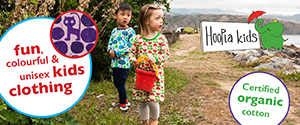


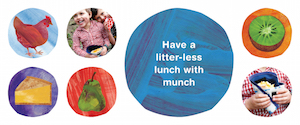
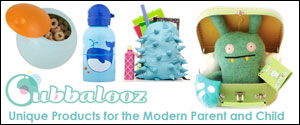
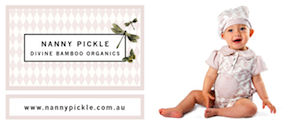
| 1. On the go accessories for school and preschool - these will make your child's school day! 2. Kid's bedroom art ideas - brighten up their spaces 3. How to dress your child for a special occasion 4. Frozen party - Gorgeous but manageable ideas for your Disney Frozen fan 5. Creamy Harissa Slow Cooked Beef - This recipe is warming and creamy. |
|
|
| 1. Flying with kids - How do the words “airplane flight” and “children” make you feel?... 2. Horse Party - ultimate horse themed party. 3. Toddlers - Living with little people: patience and understanding required! 4. Lalaloopsy party - How to craft your party around a centrepiece 5. Superkids scroggin - An innovative lunchbox idea |
|
|
| 1. Scone peapods - the cutest and most delicious vegetables around 2. Witchery Kids Clothing - with their fun blog showing the clothes in action! 3. Baby Clothes - Upcycled keepsakes. 4. Horse Party - ultimate horse themed party. 5. Best indoor playsets - Unbelievable fun most of us can only dream of! |





